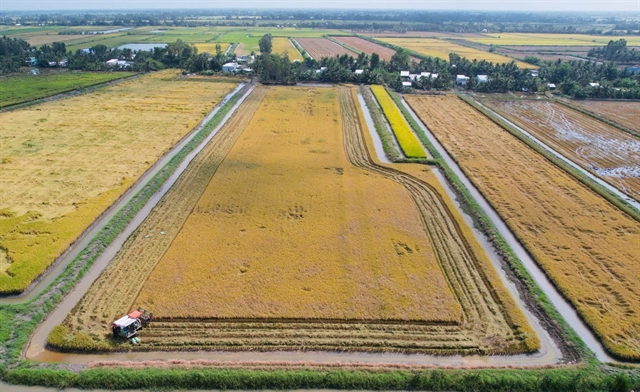 Society
Society


|
| VNeID, the electronic identification application developed by the National Centre for Population Database. According to the Strategy, all national and sectoral databases will be connected, integrated and shared with the National Integrated Database by 2030. — VNA/VNS Photo |
HÀ NỘI — Deputy Prime Minister Nguyễn Chí Dũng has recently signed a document approving the National Data Strategy at National Data Centres.
Decision 1751 aims to develop a National Integrated Database that will coordinate, analyse and share data to support digital government, digital economy and digital society.
It also seeks to establish safe, secure and reliable data systems for both the State and enterprises, creating new services, products and drivers for socio-economic growth.
By 2030, all national and sectoral databases must be connected, integrated and shared with the National Integrated Database. This includes data on all Vietnamese citizens and foreign nationals living and working in Việt Nam.
The plan also envisions developing shared services and applications for ministries, agencies and localities, and expanding convenient services for citizens and businesses.
At least 90 per cent of eligible administrative procedures will be available online, while people will no longer need to resubmit information or documents already provided in previous successful procedures.
All online public services will be delivered through the National Public Service Portal at National Data Centres, serving as the sole 'one-stop' gateway. By 2030, 100 per cent of citizens and businesses are expected to use online public services, with 90 per cent having verified digital identities across all government systems.
To achieve these goals, the strategy sets key tasks for completion by the end of 2025. These include completing the first National Data Centre, building core technology platforms and establishing a data transmission infrastructure to ensure security and regional connectivity.
The centre will serve as a hub for big data storage, integration and connection with national and sectoral databases to support government operations, public services and socio-economic development.
It will also host the National Data Portal, a Data Exchange Platform, systems for verification and authentication and other digital services.
Data management will follow strict principles of being 'accurate, complete, clean, live, unified and shared.' The centre will provide specialised systems for ministries and localities, while gradually establishing a transparent data market for citizens and businesses.
By 2030, the second National Data Centre will be completed, fully equipped for big data storage and security, and integrated with all national and sectoral databases as well as ministry and local government systems.
A third centre and additional facilities will also be built in separate regions from Centres 1 and 2 to ensure backup in case of natural disasters, major incidents or war.
The strategy further calls for the creation of digital technology zones connected with the National Data Centres and the data transmission infrastructure. These will strengthen data security, support economic and social development and promote international cooperation.
It also highlights the need for regional and international data exchange and the development of strategies to attract funding and aid for the National Data Development Fund. — VNS

.jpg)


